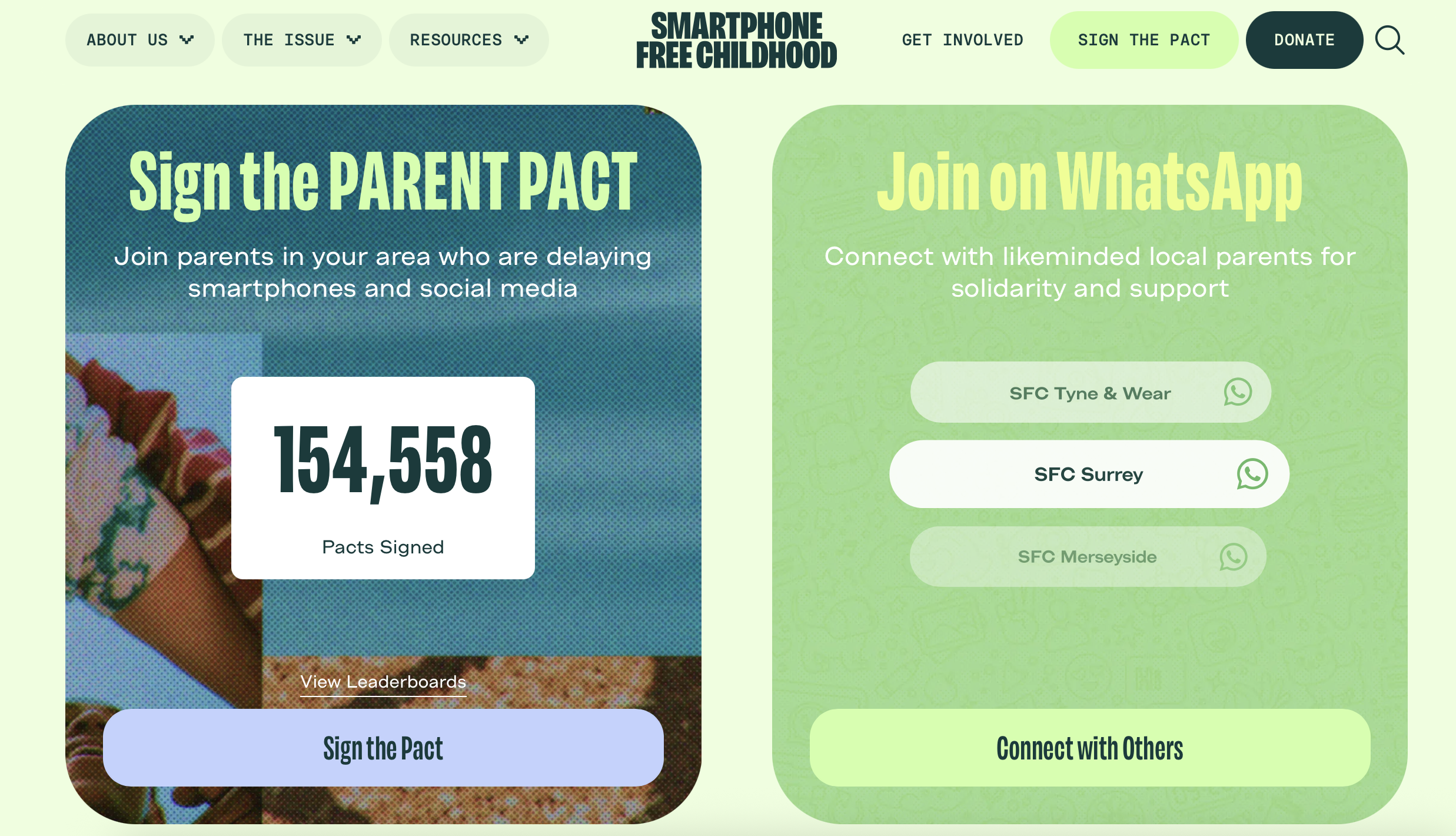Is it smart to give our kids Smartphones?
Your children have grown up with technology all around them. It’s completely normal for them, but it wasn't always so…
The first call made from a mobile phone happened on 3 April 1973 in New York City.
Fast forward to 1992, when the first SMS was sent.
1997 was when Snake was invented and available on Nokia.
By 2003, the ‘selfie’ became popular, with the front facing camera.
Facebook 2004, Twitter 2006, Instagram 2010 and more recently TikTok in 2017.
We have become addicted to our smartphones.
We know that tech companies have a vested interest in making every platform and application as addictive as possible, because the more attention they have, the more money they make - the more ads viewed - that’s their business model. And now with AI this will become even more sophisticated.
But for parents and adults, we have been led somewhat unknowingly into this attention trap, and we have allowed our children and young people to be swept into this too.
Unfortunately but perhaps inevitably, allowing unfettered access to these highly addictive and continually changing smart phones and social media platforms has led to quite a few problems.
We are now learning much more about the damage that overuse and misuse of these devices can have on our children and young people.
The Problem
Harmful content
Addiction
Family life impact - Smartphones' addictive nature means they can quietly start to take centre stage in family life – causing arguments, battles over screen time, and making it harder to share real, uninterrupted time together.
Cyberbullying
Sleep
Grooming - TikTok, Snapchat, and Roblox aren’t just playgrounds for kids – they’re a hunting ground for predators.
Mental heath
Teenage anxiety, depression and self-harm rates have skyrocketed since 2010 – when kids started getting smartphones. Evidence shows a direct link between early smartphone use and declining mental health.
Attention
The average teen now receives over 200 notifications a day – fragmenting their focus and making it harder to concentrate on schoolwork, hobbies or real-life friendships. Constant distraction is the new normal.
Opportunity Cost
Compared to any other generation in history, children growing up in the smartphone era spend less time outdoors, less time playing, less time reading, less time moving and more time scrolling, alone.
What would a smartphone free childhood look like?
Well, you’d have to be about my age, 35 or older to be able to not just imagine, but to remember what that was like.
I’d like to introduce you to an organisation called the Smartphone Free Childhood - SFC
The Smartphone Free Childhood (SFC) Movement is a UK-based, parent-led grassroots campaign advocating for children to be delayed in receiving smartphones and social media until they are older, specifically recommending no smartphones before age 14 and no social media until 16.
Founded in 2024 after a viral WhatsApp group, the movement aims to empower parents with solidarity and support.
Key activities of SFC include:
Parent Pact
Encouraging schools to adopt smartphone-free policies
Raising awareness about the potential harm of early smartphone use on children's well-being.
Smart Phone use is starting younger and younger. In the UK, 89% of 12-year-olds now own one, and so do a quarter of children aged 5 to 7. On average, kids get their first smartphone aged nine.
I believe it’s our responsibility as adults to take a longer term view of what’s in their best interests and help to protect them where we can. Protect and educate.
Click HERE to check out what the Smartphone Free Childhood organisation is all about.
Now almost 20 years since the launch of the first iPhone in 2007, we are finally seeing some sensible policies coming into affect around the world that attempt to put an age barrier for the use of some of these social media platforms to protect our children and young people.
In Barnet, London…
From September this year, 103 primary schools in Barnet will not allow smartphones to be brought in and 23 secondary schools will commit to working towards removing smartphones entirely from the school day.
In Australia…
From 10th December 2025, in a world first, Australia’s new social media rules will ban all children under the age of 16 from creating an account on social media. The ban is part of their ‘Online Safety Act’ and requires platforms to take reasonable steps to protect underage accounts, with hefty fines for non-compliance.
In France…
They trialled a ‘Digital Pause’, a pilot plan to ban smart phones in their middle schools. 180 schools, 50,000 pupils, ages 11-15. Handing in phones on arrival.
After a successful pilot, the scheme, which builds on a 2018 law banning phones in classrooms, is planned for nationwide rollout across all public middle schools by the end of 2025.
Here are some benefits of mobile bans:
Research in Spain found that school bans on mobile phones were associated with improved test scores - with gains equivalent to several months learning in Maths and Science.
A study by the University of Chicago found that the mere presence of a mobile phone can impact cognitive task performance - a phenomenon known as ‘the brain drain effect’. Removing phones from classrooms can mitigate this distraction.
However, studies have found that limiting access to mobile phones for just 7 hours a day isn’t a silver bullet. In fact, a quote from the SFC admits:
‘We’re not anti-tech, we’re pro childhood. Tech isn’t the enemy – it’s how we use it that matters. SFC is about balance, not banning.’
Something that helps with balance…
France also has another law which I think is fantastic. A "Right to disconnect" for workers.
In 2017, France implemented a "right to disconnect" law, allowing employees to ignore work-related electronic communications, like emails and messages, outside of their official working hours.
This protects well-being, and also takes away another reason for adults to be connected to their phones when with family and friends, a vital piece of the puzzle to help adults become better role models for young people.
What we owe our kids
We have a responsibility and as parents, a legal duty to protect children and young people from the addictive, destructive and harmful aspects of smart phones. There are fewer and fewer excuses now, outside of avoiding having awkward and uncomfortable conversations with our young people about healthy technology use.
But being a good parent and adult is about having difficult conversations, and doing the thing that is right, not that is always easy. We are doing them a disservice, if we can’t give them the childhood that we were able to enjoy. One free from unnecessary distraction, additional anxiety, comparison and online bullying. But one full of adventure, real human connection, learning to use technology as the incredible tool that it can be.
Final Thoughts
A path has been set by SFC that helps to improve our relationship with technology, improve our kids mental health and ensures we are the protectors and role models who our children deserve us to be.
A smartphone free childhood isn’t a punishment, it’s a gift.
The tide is changing. My hope is that we have the courage as a society to make healthy decisions for our young people.
Stay up to date
If you found this article helpful, please share it with friends. To keep up to date with the latest squash news, articles and events add your email below.





